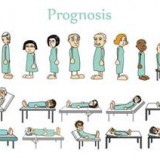Worsening prognosis not enough to allow late DME.
On August 7, 2015, a master of the BC Supreme Court ruled that a plaintiff’s failure to recover from injuries is not enough for a defendant to secure a late defence medical exam.
In Dzumhur v. Davoody, 2015 BCSC 1656, the plaintiff was injured in a a collision and sued for damages. In the course of the lawsuit the plaintiff served an expert report opining that the plaintiff ought to recover provided the injuries are responsive to recommended treatments. The defendant did not obtain a defence medical report and as the deadline approached for exchanging expert evidence the plaintiff served an updated report suggesting the plaintiff’s prognosis was poor. The defendant argued they ought to be entitled to a late exam in these circumstances but the Court disagreed noting the defence should have been alive to this possibility earlier. In dismissing the requested late exam Master Muir provided the following reasons:
[13] Further, I am not satisfied that the defendants can properly say they shall have been truly taken by surprise by the medical condition of the plaintiff. Dr. Caillier’s initial report was in 2013. It is couched in careful terms that said in essence: provided the plaintiff responds to the treatments prescribed, he should fully recover. Well, that is the very nub of the matter: will he or will he not respond to the treatments? Did he or did he not respond to the treatments? Obviously Dr. Caillier’s second report indicates that he did not
[14] The defendant then had an opportunity to discover the plaintiff in May of this year, two weeks before the plaintiff saw his doctor. At the discovery, I am advised it was evident that the plaintiff was still playing soccer, but counsel was not able to say whether the plaintiff claimed to be pain free.
[15] There is no basis that I can see on the evidence for the assertion that the second report of Dr. Caillier took them or should have taken them, perhaps more to the point, completely by surprise. The possibility existed that the treatments would not be successful. The defendant must be seen to have chosen to accept that risk without obtaining an IME before the 84-day deadline.
[16] One of the important factors in these cases, as noted in Timar at para. 21, is whether the party can claim to be truly surprised by the condition of the plaintiff. Here it is my view that that is not the case. There is nothing that satisfies me that Dr. Bishop cannot do a responsive report to the report of Dr. Caillier without a complete IME of the plaintiff. As a result, the application is dismissed.




